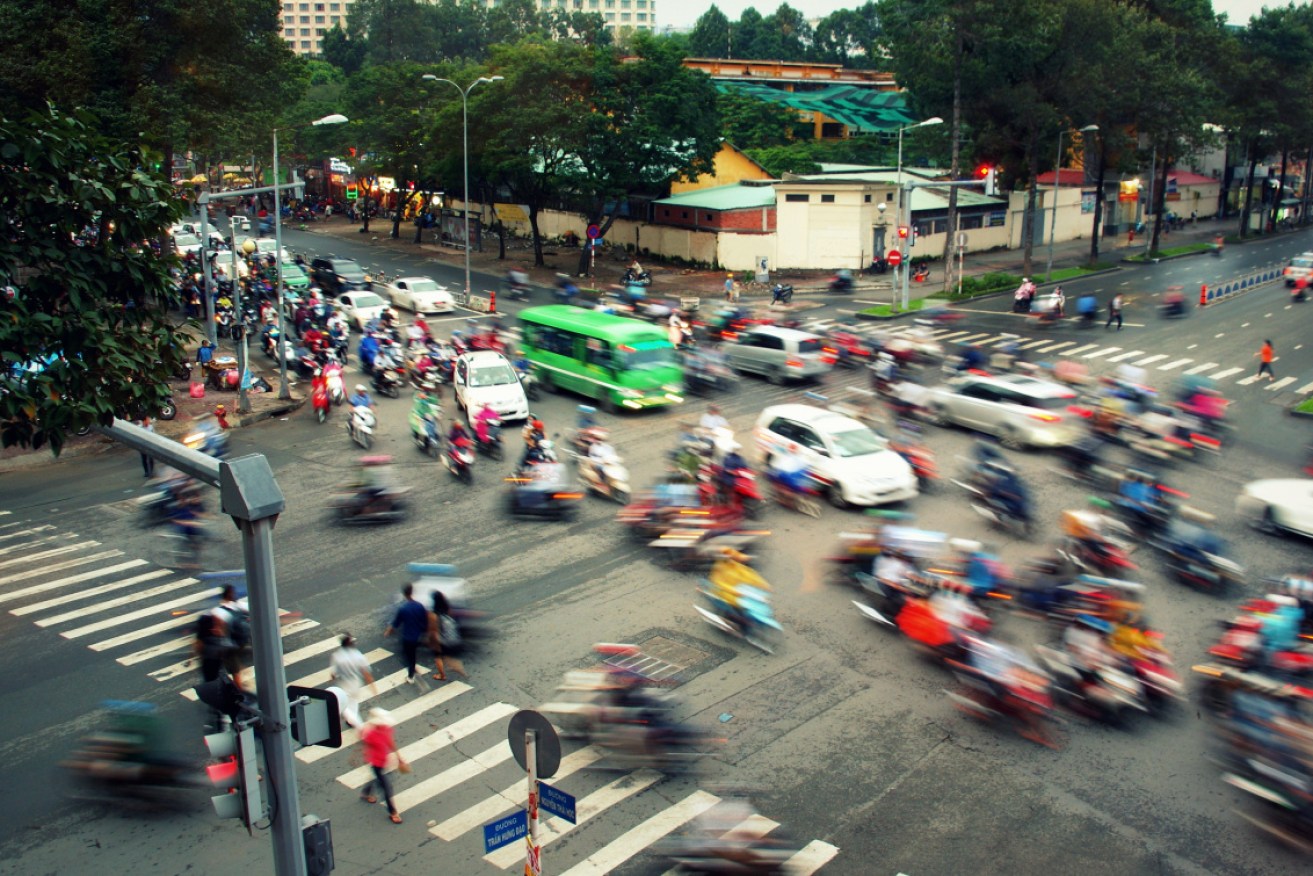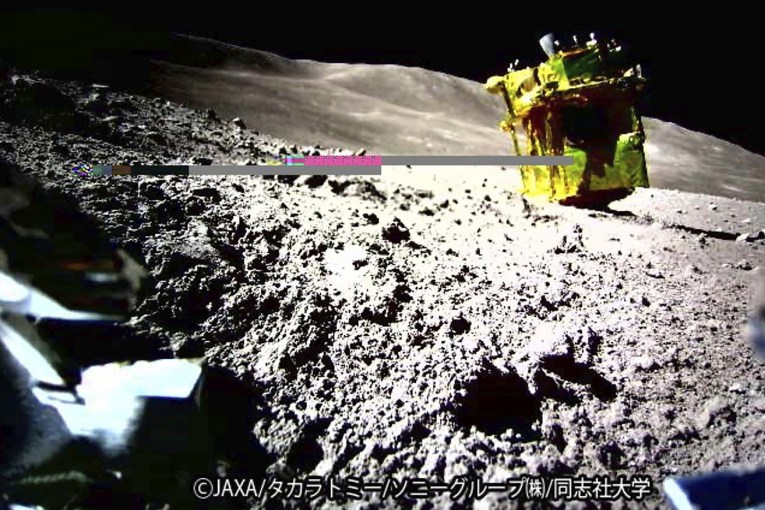Five things travel agents don’t tell you about Vietnam


There is definitely an art to crossing the street in Ho Chi Minh City. Photo: Getty
Venturing to Vietnam brings with it the prospect of fantastic food, affordable travel and even better memories.
That’s not to mention the shopping, unique sights, unusual hygiene habits and deafening public concerts.
But there are some things beyond the standard theft, health and safety precautions that travel agents or government agencies never seem to mention in brochures.
And like most things unplanned, they can often end up being among the most memorable highlights of your trip.
Walking across the road
Expect the unexpected, particularly when the footpath is far from off limits.
In days past, road rules have been virtually non-existent, though my insider insists obeyance of traffic has changed for the better.
The millions of vehicles – mainly scooters or buses – combine for a never-ending confluence of chaos when driving on the right-hand side of the road.
Best to start at a pedestrian crossing, preferably with a local or experienced hand.
Survey the space around you and determine what traffic is headed your way – buses and cars are harder to stop, so avoid stepping out in their path.
Bikes will weave their way around you.
The best advice is slow and steady wins the race, but keep your eyes and ears open to ensure you do not stop or run as you proceed.
Rest assured, the first time is the hardest, but never assume you’re an expert.
Toilet paper in the bin rule

Observe the sign to avoid any nasty accidents. Photo: Ross McGravie
There’s a saying in journalism ‘If in doubt, leave it out’.
The same applies in Vietnam, where you’ll often see a sign in toilets asking patrons not to flush toilet paper down the toilet.
Primarily attributed to the inadequate plumbing systems and the threat of blockage, there will be a bidet shower (or bum gun) on hand to wash your derriere.
If there is a waste basket in the room, use it for your toilet tissues.
Likewise, when venturing out of the cities, be prepared for the squat toilets, which are a step down from the comforts of the city.
In most cases there’s a hole in the ground, complete with a bucket of water to ‘flush’ once nature has called.
If possible, carry a stash of toilet paper if you’re ever in danger of being caught short.
Sleeper buses

There can be a substantial difference between the dream sleeper bus and the reality. Photos: Klook/Ross McGravie
Squeezy does it. When you’re on a budget, the sleeper buses can be the best way of moving around – and the theory about saving on accommodation with an overnight trip is fine.
The only problem for westerners is the size of the ‘double’ beds.
If you’re lucky, you’ll have an individual seat. If not, be prepared to get up close and personal with your travel companion.
Air-conditioning can also make a long trip uncomfortable if you’re under-dressed, so make sure you have socks, a hoodie and even a sleeping bag/blanket on hand.
Remember that space will be at a premium, so pack light with your carry-on luggage (complete with valuables and passport).
The other downside is the snoring.
Avoid the insufferable by packing an eye mask, ear plugs and ensure your music and relaxation tracks are on your phone, together with a fully charged Power Bank and hours of entertainment.
A snack or two and a steady supply of water (particularly if you have an onboard toilet) can also come in handy.
Last but not least is knowing your destination, as it’s not always guaranteed that the driver will reach it. Best to keep your Google Maps or equivalent uploaded on your phone when you near your destination.
Cash economy

Cash is king in Ho Chi Minh City, with locals often preferring US dollars to the Vietnamese Dong. Ensure you have plenty of lower denominations. Photo: Getty
Forget tapping: The old-school payment methods rule in neighbouring Cambodia (in US dollars) and Vietnam.
Beyond hotels and shopping malls, few places accept credit cards so cold, hard cash is king.
Bartering is an integral part of the equation, particularly when it comes to tourist prices at street markets.
The best advice is to walk away if the asking price doesn’t appeal, and see how quickly the price comes down.
The same goes for budget hotels.
Forget booking online, hit the streets, inspect each room, don’t settle for the first room you see, and be sure to haggle if you intend staying for more than a night.
Carry small notes with you where possible, as most vendors will likely not be able to provide change from the largest denominations.
Salesmanship tactics
As soon as you set foot outside the airport, someone will inevitably be touting for your business – be it taxis, cigarettes, sunglasses, tours or massages.
It’s the way of life. A simple ‘No thanks’ or a firm shake of the head should suffice.
If you intend to buy anything, be sure to know the exact price (in Vietnamese dong of US dollars) before you flash the cash, and always count your change.
Also be wary that there’s plenty of exaggeration in claims.
For example, paying a premium for a new bus may still result in a 20-year-old vehicle without air-conditioning rolling up.
Unlike Australia where it’s a simple process of adults, concessions and children, there is often a locals and foreigners price, particularly at major attractions.
Likewise, on bus trips, don’t feel obligated to buy anything at roadside stops as there is a good chance the drivers are being paid a commission to call in.








